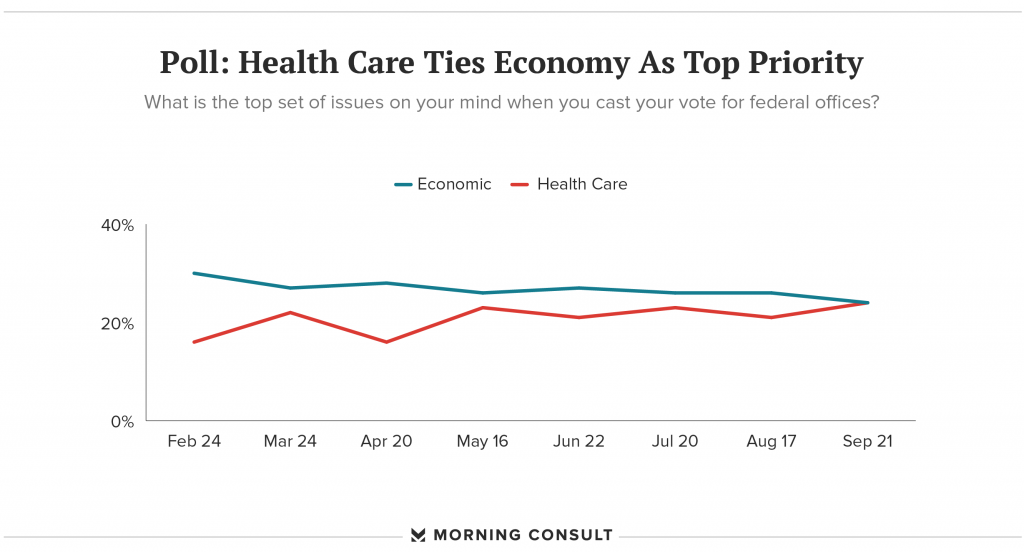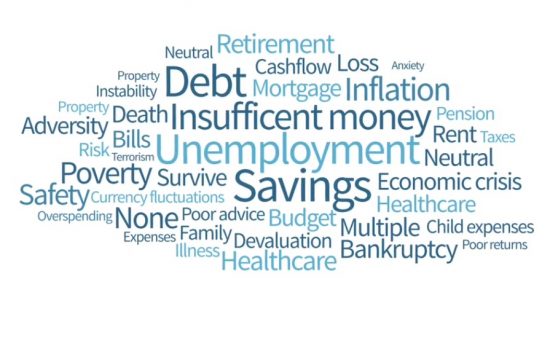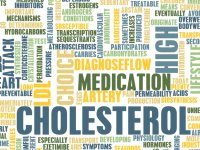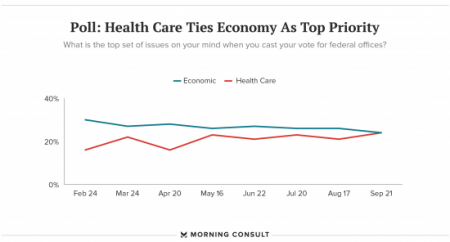
Healthcare and the economy tied for US voters’ top issue last week, as the prospects for repealing the Affordable Care Act faded by the weekend.
This Morning Consult poll was published 28th September 2017, as it became clear that the Graham-Cassidy health reform bill would lose at least three key votes the legislation needed for passage: from Rand Paul, Susan Collins, and John McCain.
Liz Hamel, who directs the Kaiser Family Foundation’s survey research, told Morning Consult that, “when people say ‘health care,’ they often are actually talking about the economic issue of health care.”

The wordle pictured here illustrates that integrated mindset: this image represents Millennials’ biggest financial concerns, tabulated in a new report called Life is a Rollercoaster from ReMark, an insurance marketing services firm. Millennials are most concerned about job security, savings, and debt, with healthcare coming into play along with other financial issues like retirement, mortgage payments, and safety.
Health Populi’s Hot Points: “Health is the new wealth,” ReMark asserts, a truism across the generations. While definitions and nuances of what constitutes “health” may differ between Millennials versus Boomers, ReMark notes that, “in a world of scarcity, we shared risk; in today’s world of abundance we have the opportunity to share value.”
In U.S. healthcare, that sense of value can also vary depending on who’s footing the financial bill, what our risk tolerance is, and how our life-outlook is, well, looking.

Take a new study published online in JAMA Cardiology last week, that looks at patients’ out-of-pocket costs for expensive new cholesterol drugs. “While highly effective,” the authors write, “the new drugs [Praluent and Repatha] cost as much as $14,000 annually.” The study found that only 30.9% of the patients who were prescribed the drugs received them, those not filling the scripts dissuaded almost entirely by the out-of-pocket cost of the medicine. Patient copays ranged from $0 to $2,822 per month, based on pharmacy claims data for 45,029 patients receiving an Rx for a newe PCSK9i prescription between August 2015 and July 2016.
Patients and their prescribers in the U.S. are now faced with taking on roles as health economists, weighing the clinical and fiscal pros and cons of an Rx. What a doctor may perceive as an appropriate clinical end-point may differ from that of the patient, for whom a $2800 copay each month represents take-home pay.
As patient-consumers face greater out-of-pocket costs for drugs and healthcare services, they’ll be looking for the value propositions of those prescribed and recommended therapies…in languages and nuances relevant and personalized to them.





 Interviewed live on BNN Bloomberg (Canada) on the market for GLP-1 drugs for weight loss and their impact on both the health care system and consumer goods and services -- notably, food, nutrition, retail health, gyms, and other sectors.
Interviewed live on BNN Bloomberg (Canada) on the market for GLP-1 drugs for weight loss and their impact on both the health care system and consumer goods and services -- notably, food, nutrition, retail health, gyms, and other sectors. Thank you, Feedspot, for
Thank you, Feedspot, for  As you may know, I have been splitting work- and living-time between the U.S. and the E.U., most recently living in and working from Brussels. In the month of September 2024, I'll be splitting time between London and other parts of the U.K., and Italy where I'll be working with clients on consumer health, self-care and home care focused on food-as-medicine, digital health, business and scenario planning for the future...
As you may know, I have been splitting work- and living-time between the U.S. and the E.U., most recently living in and working from Brussels. In the month of September 2024, I'll be splitting time between London and other parts of the U.K., and Italy where I'll be working with clients on consumer health, self-care and home care focused on food-as-medicine, digital health, business and scenario planning for the future...